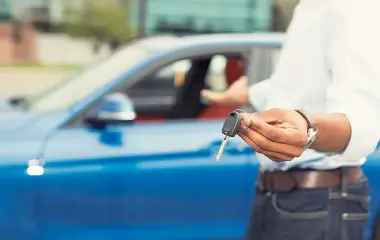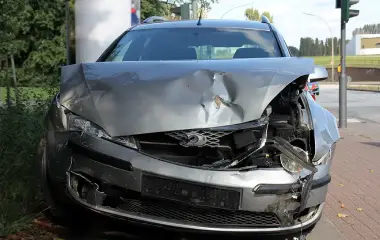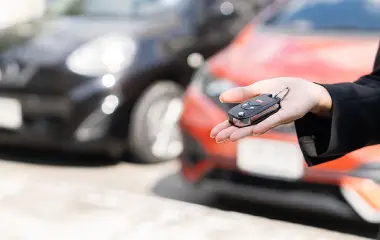A seized car engine is a dreaded scenario for any vehicle owner. It can be a costly and time-consuming issue to fix, but detecting it early can help prevent further damage.
In this comprehensive guide, we will explore the signs and symptoms that indicate a seized engine, the common causes behind it, and some preventive measures to keep your engine in good health. Plus, we’ll discuss knowing when to let go of a damaged vehicle with a faulty engine and how you can make top-notch cash when trading it in at a cash for cars service.
What is a seized engine?
A seized engine refers to a condition in which the internal components of a car's engine become stuck or immobile, preventing the normal rotation of the crankshaft. This issue typically arises due to a lack of proper lubrication, causing increased friction between moving parts. When an engine seizes, it can lead to serious damage to crucial components, such as pistons, crankshafts, and bearings.
Detecting an engine block is crucial, as continued attempts to start the vehicle under such conditions can increase the damage. Timely diagnosis and addressing the root cause are essential to prevent further deterioration and costly repairs.
Signs of a seized engine
Unusual sounds
Listen for any unusual sounds when starting your car. A locked-up engine may produce a grinding or clunking noise, indicating internal components are not moving freely.
Stiff or immovable crankshaft
Attempt to manually turn the crankshaft with a wrench. If it doesn't move or feels extremely stiff, it could be a sign that the engine is seized.
Overheating
Seized engines often generate excessive heat due to the lack of lubrication and increased friction between components. If your engine is frequently overheating, it could be a warning sign.
Smoke or burning smell
Smoke or a burning smell coming from the engine bay can indicate friction between seized components, causing them to heat up.
Fluid leaks
Check for oil or other fluid leaks around the engine. A seized engine may lead to a rupture or damage to the oil pump, causing leaks.
Common causes of a seized engine
Lack of lubrication
Insufficient oil or poor-quality oil can lead to friction and increased heat, causing the engine components to seize.
Coolant contamination
If coolant mixes with the engine oil, it can lead to a loss of lubrication and subsequent seizing.
Overheating
Continuous overheating due to a malfunctioning cooling system can cause the engine to seize.
Piston ring failure
Damaged or broken piston rings can lead to poor lubrication and increased friction, resulting in a seized engine.
.jpeg)
Preventive measures that will ensure your engine’s performance
Regular oil changes
Ensure that you adhere to the manufacturer's recommended oil change intervals to maintain proper lubrication.
Cooling system maintenance
Regularly inspect and maintain the cooling system to prevent overheating.
Monitor fluid levels
Keep an eye on oil, coolant, and other fluid levels, topping them off as needed to ensure proper lubrication.
Address warning signs promptly
If you notice any unusual sounds, overheating, or other warning signs, address them promptly to prevent further damage.
Professional inspections
Schedule regular inspections with a qualified mechanic to catch potential issues before they escalate.
.jpeg)
What should I do if my engine seizes unexpectedly?
If your engine seizes unexpectedly, it's essential to remain calm and take immediate action to prevent further damage. First and foremost, do not attempt to force the ignition or keep trying to start the vehicle, as this can worsen the situation. Shift the gear into neutral and safely pull over to the side of the road or off the driving path.
Once stationary, turn off the ignition and engage the emergency brake. Contact a professional towing service to transport your vehicle to a trusted mechanic or repair facility. Attempting to diagnose or fix a seized engine without the necessary expertise can lead to additional complications. A qualified mechanic will assess the extent of the damage, identify the root cause, and provide recommendations for repair or replacement.
Can I sell a car with a seized engine?
Yes, it is possible to sell a car with a seized engine, but it's important to be transparent about the condition of the vehicle with potential buyers. Selling a car in this state can be challenging through traditional channels, as most buyers prefer vehicles in working order. However, there are alternative options.
One avenue to consider for selling a salvaged car, including those with a seized engine, is through services like 1800 Salvage. We specialise in buying damaged or salvaged vehicles, providing a straightforward process for sellers.
Get top cash for cars with seized engines at 1800 Salvage
At 1800 Salvage, you can turn the challenge of owning a car with a seized engine into an opportunity to get top cash for your vehicle. Specialising in buying damaged or salvaged cars, we provide a hassle-free and transparent process for selling vehicles in various conditions.
To get started, simply reach out to us with details about your car, including its make, model, and the extent of the engine damage. Our experts at 1800 Salvage will assess your vehicle and offer a competitive cash value based on an appraisal.

%2520(2).jpeg)

.jpeg)

.jpeg)

.webp)
